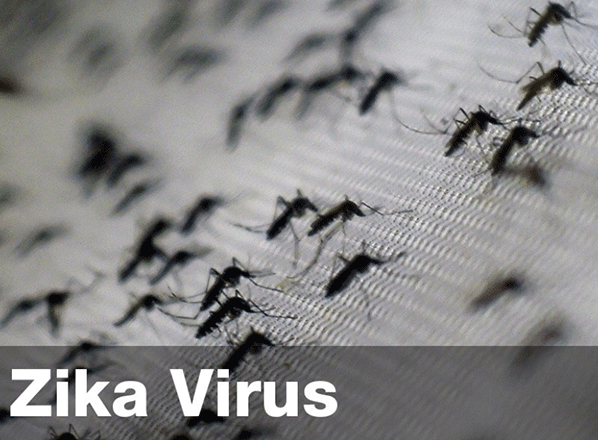Zika Virus 101: All You Need to Know About the Threat
The one news that keeps on popping up on our news-feed again and again and which has got us all worried is the outbreak of Zika Virus disease. We are all concerned and curious about this . So, here are the answers to all your questions on the threat called zika virus.
Origin, Area and Transmission
-
What is Zika Virus?
The Zika Virus is a mild disease that is transmitted through the bite of the day-time active Aedes mosquitoes. Zika Virus is related to dengue, yellow fever, Japanese encephalitis and West Nile viruses. It was discovered first in the forest of Uganda in 1947 and did not begin spreading widely in the Western Hemisphere until last May, after an outbreak in Brazil.
Till now almost no one on the Western hemisphere had been affected. Few people in this side of the hemisphere have the immune defence against this virus.Millions of people in the tropical region of the Americas may now have been infected. The good news is that it won’t kill you! Death due to this virus is rare.
-
How is the virus spread?
We have mentioned this before but we would like to address it again. Zika is spread by Aedes mosquitoes who like to buzz-and-bite during the day time. The good old mosquitoes love to breed in a pool of water (might be as small as a cap of water). The aggressive yellow fever mosquito, Aedes aegypti , is known to spread the Zika virus in most of the cases. This mosquito is found in Florida and spreads as far as Hawaii in the Summer season.
Another breed that spreads the virus is the Asian Tiger mosquito , Aedes albopictus. They are known to be found as far as New York and Chicago in summer.
-
What are the symptoms of Zika ?
Zika is a very mild disease and only 1 in 5 people get sick. This makes it even harder to realize that they are indeed sick. The general symptoms are fever, rash, joint pain or conjunctivitis. The symptoms start exhibiting themselves after 2 to 7 days of being bitten.
-
What are the modes of transmission of Zika?
The Zika Virus is transmitted as follows-
- By the Aedes mosquito. If the mosquito bites person A who is infected and then bites person B who is healty, then B gets infected as well.
- It is transmitted by a pregnant mother to her baby.
- Sexually transmitted.
-
Is the Zika Virus sexually transmitted?
Yes, it is sexually transmitted but in rare cases. So far, there have been three cases where a woman had been infected through sexual contact. The cases are-
- In 2008, a scientist studying malaria had returned to Colorado from Africa and had transmitted his disease to his wife.
- In 2013, live virus had been found in the semen of a Tahitian male. Whether he infected anyone is not known.
- In early February this year, health officials of Texas reported a case of a Venezuela woman who had been infected by a traveller who had returned to Dallas.
In the first two cases the men had complained of genital pain and blood in semen which confirms that the infection had spread to their testes and prostrates had been infected.
It is not yet known whether a woman can transmit it to a man through oral, anal or any other form of sex, if the man has to have blood in his semen to transmit it and many more.
To be on the safe side, Doctors advise the infected male to use condoms for at least 28 days.
-
Name of the countries already affected by the Virus?
The places where the transmission is going on is hard to determine and changes over time. So, it is better to stay updated through the CDC Traveller’s Health site. But, for February 2016, CDC has issued travel related warnings to the following areas-
- American Samoa
- Barbados
- Bolivia
- Brazil
- Cape Verde
- Colombia
- Commonwealth of Puerto Rico, U.S. territory
- Costa Rica
- Curacao
- Dominican Republic
- Ecuador
- El Salvador
- French Guiana
- Guadeloupe
- Guatemala
- Guyana
- Haiti
- Honduras
- Jamaica
- Martinique
- Mexico
- Nicaragua
- Panama
- Paraguay
- Saint Martin
- Samoa
- Suriname
- Tonga
- U.S. Virgin Islands
- Venezuela
Because of the prevalence of the mosquito-borne virus in these countries, the CDC advises that American women who are expecting (as well as those hoping to become pregnant) not travel to those countries.
-
Who are at the risk of being infected?
Anyone who lives in or has travelled to the area where Zika virus is found and has not already been infected with Zika virus is at risk.
-
Is Zika contagious?
The Virus is not airborne and is not spread from one person to another. To put it simply, you won’t get infected just by standing near an infected person. The virus is mostly spread through mosquito bites. However, it can be spread through sexual transmission. Pregnant woman may pass it on to their child.
-
Why is the virus spreading so quickly?
The are two reasons that the virus is spreading so quickly-
- Most people in South, Central and North America have not previously been exposed to the virus and hence have no immunity against it. Therefore it is easy for the virus to spread.
- Aedes mosquitoes are present in all the regions of countries except Canada and Chile.
-
Does Zika Virus infection cause Guillian-Barre’ Syndrome (GBS)?
GBS is a rare syndrome where the person’s own immune system damages the nerve cells, causing muscle weakness and sometimes paralysis. These symptoms can last a few weeks to several months. Most people fully recover from GBS but in some rare cases people have died. Health experts do not know if Zika infection causes GBS. It’s hard to tell if any particular germ causes it. The Brazil ministry of health has reported increased cases of GBS and are working to determine if Zika makes it more likely to get GBS.
Pregnancy, Children and Zika
PC: Popsugar
-
What is the effect of Zika Virus on pregnant women?
When a pregnant woman gets infected with the virus, it is possible that the virus would affect the foetus. In countries affected by Zika Virus outbreaks, there has also been an increase in the cases of Microcephaly. This relation is why health experts believe that Zika infection during pregnancy may lead to this otherwise rare birth defect. CDC insists that more research is required to link between the virus and microcephaly because there might be other risks involved as well which are not yet known.
-
What is Microcephaly?
Microcephaly is a rare neurological condition in which an infant’s head is significantly smaller than the heads of other children of the same age and sex. Sometimes detected at birth, Microcephaly usually is the result of the brain developing abnormally in the womb or not growing as it should after birth.
Microcephaly can be caused by a variety of genetic and environmental factors. Children with Microcephaly often have developmental issues. Generally there’s no treatment for Microcephaly, but early intervention with supportive therapies, such as speech and occupational therapies, may help enhance your child’s development and improve quality of life.
-
What are the CDC issued travel guidelines for pregnant women?
Because of the serious nature of the potential harm possible to the foetus CDC has asked pregnant women to be especially careful. CDC says that women in any of the trimesters or those hoping to get pregnant should avoid travelling to the Zika outbreak areas.
Those women are trying to conceive and have to absolutely travel to those areas should talk to their pre-natal practitioner before embarking on the trip. Most importantly they should prevent mosquito bites at any cost.
-
What if a pregnant woman lives in the outbreak area or has traveled to the same?
CDC lays down that they should get themselves screened for the virus immediatly even if they do not feel sick. CDC has recommended the tests to be run to detect the virus in pregnant mothers and for the unborn babies . The women should absolutely talk to their doctor , especially if they have a slight fever, rash or the other symptoms. If you are concerned because you have conceived after having travelled to one of those areas. The virus remains in the blood of the infected person for only a few days to a week , so it’s a potential worry for only for that period of time. Thankfully, the virus won’t cause complications for conceived child once it is cleared from the blood.
-
How to prevent Zika Virus and mosquito bites during pregnancy?
The best approach is to avoid the areas of outbreaks. But, if you live there then long sleeved t-shirts, socks and bottoms covering your legs completely might be a good idea, permethrin treated if possible. Staying in during the peak mosquito hours , using air conditioning inside and applying mosquito repellant (which is safe for pregnant women by the way), are some of the ways.
-
Can a previous Zika infection cause a woman who has conceived later to have a baby with microscopically?
There have been no cases to suggest that something like that can happen yet. Zika Virus remains in the blood of the person for about a week. The virus will not cause complications for a baby who is conceived after the virus has been cleared from the blood.
-
Why the special warning for pregnant women?
When a mom-to-be gets infected it effects the foetus causing Microcephaly in the unborn child. Microcephaly is a neurological condition in which the baby is born with a small head and severe developmental issue and in rare instances causes death.The highest risk to the foetus is believed to be in first trimester.
-
Should infants be tested?
Federal health officials say that newborns should be tested for infection with the Zika virus if their mothers have visited or lived in any country experiencing an outbreak and if the mothers’ own tests are positive or inconclusive.
The reason, officials said in interviews, is that infection with the virus could be linked to defects in vision and hearing, among other abnormalities, even if the child does not suffer microcephaly. The other defects may require further assessments and testing.
The new guidance applies only to infants of mothers who reported symptoms of Zika virus infection — a rash, joint pain, red eyes or fever — while living abroad in an affected country or within two weeks of travel to such a destination.
-
Does it matter when in her pregnancy a woman is infected?
The most dangerous time is thought to be during the first trimester – when some women do not realize they are pregnant. Experts do not know how the virus enters the placenta and damages the growing brain of the fetus.
Test, Treatment and Prevention
-
What can be done to prevent being infected with Zika?
There is no vaccine to prevent Zika. The only way to protect yourself and your family from getting infected is to avoid getting bitten by mosquitoes. Here are the suggestions on how to do that seemingly impossible goal-
- Wear long sleeved shirts and long pants
- Stay in places with air conditioning
- Put screens on windows and doors to prevent mosquitoes from entering .
- Use EPA registered insect repellents. Do not spray the repellent on bare skin. Do not use it on kids younger than 2 months of age. Spray the mosquito repellent on your hands first and then apply on face.
- Cover the crib or stroller with mosquito netting.
- Treat clothes with Permethrin or buy clothes treated with Permethrin. Be sure to check the period for which the protection will last.
- Sleep under a mosquito net if you are outside or overseas travelling.
-
How to know if someone is infected? Are there special tests?
It is a very mild infection and very hard to diagnose.
Until recently, Zika was not considered a major threat because its symptoms are relatively mild. Only one of five people infected with the virus develop symptoms, which can include fever, rash, joint pain and red eyes. Those infected usually do not have to be hospitalized.
There is no widely available test for Zika infection. Because it is closely related to dengue and yellow fever, it may cross-react with antibody tests for those viruses. To detect Zika, a blood or tissue sample from the first week in the infection must be sent to an advanced laboratory so the virus can be detected through sophisticated molecular testing.
-
Is there a treatment?
No, there is no treatment. CDC has not prescribed any antiviral medicine for the Zika infected people. The best way is to treat the symptoms_
- Get plenty of rest.
- Take ample fluids and prevent dehydration.
- CDC recommends taking medicine such as Acetaminophen to reduce fever and pain.
- Do not take steroid or other non-steroidal anti-inflammatory drug.
- If you are already taking medicines for another condition, please consult your doctor before taking any other medicine.
-
Is there a Vaccine to prevent Zika?
There is no vaccine against the Zika virus. Efforts to make one have just begun, and creating and testing a vaccine normally takes years and costs hundreds of millions of dollars.
Because it is impossible to completely prevent mosquito bites, the C.D.C. has advised pregnant women to avoid going to regions where Zika is being transmitted, and has advised women thinking of becoming pregnant to consult doctors before going.
Travelers to these countries are advised to avoid or minimize mosquito bites by staying in screened or air-conditioned rooms or sleeping under mosquito nets, wearing insect repellent at all times and wearing long pants, long sleeves, shoes and hats.
-
Is a person immune for life once infected?
Once a person is infected, he/she is likely to be protected from future infections.
-
What is CDC doing about Zika?
CDC has now been aware of the virus for quite some time and has been preparing itself for it’s possible introduction in the US. Laboratories across a number of counties have been trained to test for Chikungunia and Dengue, thereby making them eligible to test for Zika.
CDC is working with the international health partners and with state health departments to achieve the following-
- Alert health care providers and public about Zika
- Post travel notices and other travel related guidance.
- Provide state health labs with diagnostic tests.
- Detect and report cases which will help prevent further spread.
CDC aims to support mosquito control programs, effectively monitor for disease and to equip diagnostic labs all around the world.
-
Should we be concerned about Zika Virus in the United States?
The U.S. mainland does have Aedes mosquitoes that can become infected with and spread Zika virus. U.S. travellers who visit a country where Zika is found could become infected if bitten by a mosquito.With the recent outbreaks, the number of cases among travellers visiting or returning to the United States will likely increase. These imported cases may result in local spread of the virus in some areas of the United States. CDC has been monitoring these epidemics and is prepared to address cases imported into the United States and cases transmitted locally.
Source: The Seattle Times & Pediatric Oncal




